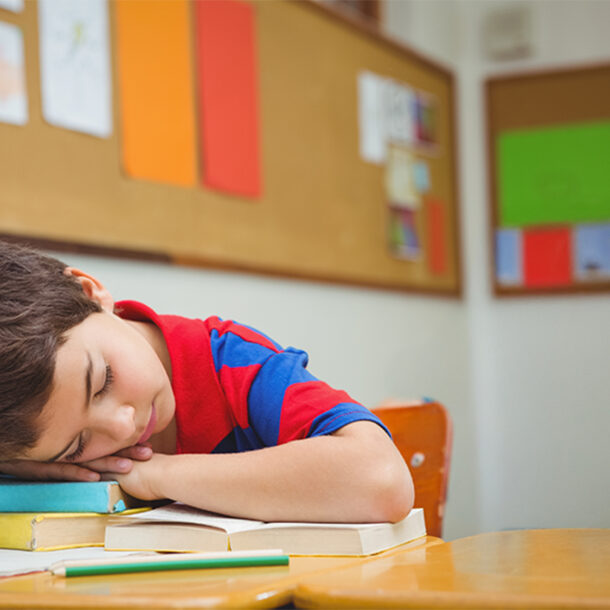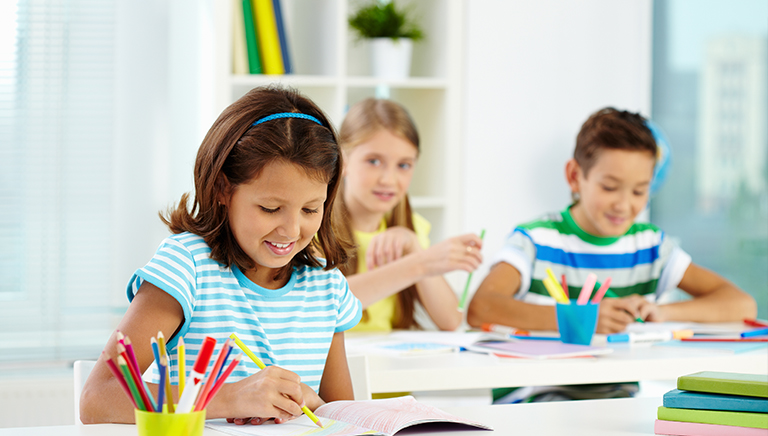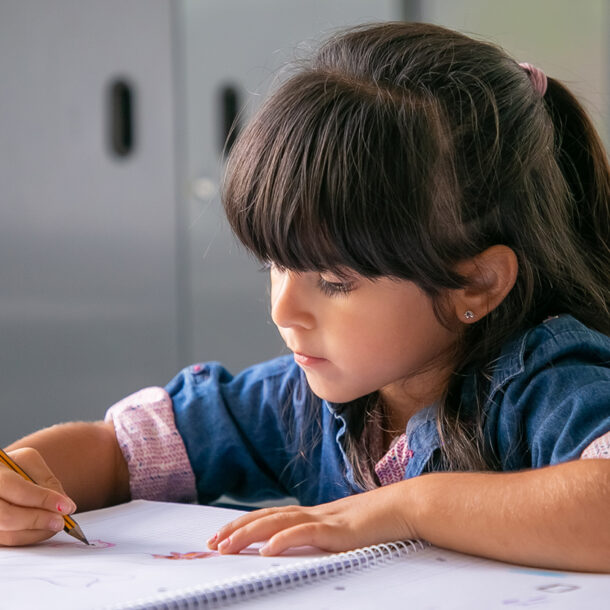

Introduction
Have you ever noticed how your child lights up and smiles when they hear “That’s great!” or “I’m proud of you”? Those split seconds can affect their self-perception, motivation, and attitude towards challenges.
At Sunbeam International School, Vellore, we’ve observed the impact that encouragement can have when it serves as a burst of energy for lifelong learning. However, not every form of encouragement is effective, and we believe it’s necessary to investigate motivation and the process of motivation and how to develop confident and curious learners by using encouragement more effectively.
Why Praise in Early Childhood is Important
During early development, children act like sponges and absorb anything and everything around them – every gesture, word, and reaction. This is where praise begins – a mirror for self-perception.
Praise boosts self-esteem and builds bridges between the adult world and the child’s. It tells them, “You are noticed,” and “I notice your effort.”
The Psychology of Encouragement
Children often read praise as clues about who they are. For example, a child often praised for “smartness” (intelligence) may develop a fear of making mistakes, believing that making one mistake will eliminate that “smart” identity. Children, who are praised for their effort, learn that persistence and strategies will lead to success.
Types of Praise and Their Effects
Process Praise vs. Person Praise
Let’s break down the two major kinds:
- Process Praise: Focuses on effort, strategy, or action.
Example: “You figured out a new way to solve that problem!” - Person Praise: Focuses on traits.
Example: “You’re so clever!”
The Downside of Overpraising
Too much praise, especially when not earned, can:
- Reduce motivation
- Create dependency
- Devalue praise overall
Children begin to expect praise for every action, which dilutes its purpose.

The Importance of Authentic Praise
Authentic praise is impactful. Children can recognise fake praise from a mile away.
State what you mean and mean what you state.
How Praise Impacts Various Stages of Development
Toddlers and Preschoolers
At this stage, praise helps establish basic social and emotional skills:
- “Good sharing!”
- “Thank you for using your words.”
Primary School Children
Now, kids start understanding more complex ideas. Praise should:
- Be specific
- Highlight process over outcome
Primary School Children
Teens crave authenticity. They’ve developed filters and can detect hollow praise. Shift the tone:
instead of “You’re amazing”, try
“I saw how you stayed calm and handled that challenge.”

The Science Behind Praise and Motivation
Insights from Carol Dweck and Growth Mindset
Carol Dweck’s famous theory of the growth mindset teaches us:
- Praise should reinforce learning, not natural ability
- Kids praised for effort show more resilience
Brain Chemistry: Dopamine and Positive Reinforcement
Dopamine is a chemical in the brain that feels good. When you praise someone, you activate this pathway.
By reinforcing behaviour with praise, you encourage those behaviours again.
Practical Praise Techniques For Parents and Teaching Professionals
Be Specific and Timely
Avoid vague phrases like “Good job!” Instead, say,
“You organised your toys without being asked, which shows you are a responsible child!”
Praise Effort Over Outcomes
A child who puts forth 100% effort on their project (regardless of the outcome) needs to know that you recognise the process and effort.
Be Wise with your Praise through Non-verbal Signs
A high-five, a smile, or a thumbs-up can be as powerful as the spoken word.
Avoid Making Comparisons to Other People When Praising
Commenting on one student or child while dismissing another and making them feel insecure is foolish.
✅ “I love how you helped clean up to make the classroom ready for learning.”
❌ “Why can’t you be more like your brother?”
✅ “I love how you helped clean up to make the classroom ready for learning.”
❌ “Why can’t you be more like your brother?”
Praising a Student in an Educational Context
How Schools Exist in a Praise-Based Culture
The student-learning environment that encourages celebrating growth, improvement, and acts of kindness will improve engagement in students immediately.
The Strategies Implemented at Sunbeam International School, Vellore, Tamil Nadu
- Teachers encourage and focus their praise on students in a purposeful fashion based on the overall process and effort.
- Classrooms use “effort boards” to showcase progress
- Verbal and non-verbal appreciation happens in real time.
This helps students develop confidence in learning rather than just seeking grades.
Praising a Student in an Educational Context
- Empty Praise
Generic statements like “You’re amazing” feel good but don’t guide behaviour. - Excessive Praise
Praise should be earned. Overuse can reduce its effect and create entitlement. - Conditional Praise
“You’re a good boy if you clean your room,” which teaches that love and approval are earned. Dangerous territory.

Benefits of Properly Delivered Praise
- Improved Self-Esteem
Children who are genuinely encouraged believe in their abilities. - Increased Intrinsic Motivation
They begin doing things for personal satisfaction, not for praise. - Development of a Growth-Orientated Mindset
Kids learn that mistakes are stepping stones – not signs of failure.
FAQ
Q1: Can praise make a child lazy?
A: Only if it’s not tied to effort. Praise that rewards hard work boosts motivation, while vague praise might lead to complacency.
A: Only if it’s not tied to effort. Praise that rewards hard work boosts motivation, while vague praise might lead to complacency.
Q2: How often should I praise my child?
A: Quality matters more than quantity. Praise when it’s genuine, relevant, and encourages growth.
A: Quality matters more than quantity. Praise when it’s genuine, relevant, and encourages growth.
Q3: Is verbal praise enough?
A: Often yes, but combining it with gestures, smiles, or positive feedback deepens the impact.
A: Often yes, but combining it with gestures, smiles, or positive feedback deepens the impact.
Q4: How can I praise a struggling child?
A: Focus on persistence, creativity, or trying again. “I love how you didn’t give up!”
A: Focus on persistence, creativity, or trying again. “I love how you didn’t give up!”
Conclusion
Praise is a small word with a massive impact.
When used with intention, it becomes a bridge to connection, a tool for growth, and a seed of confidence.
At Sunbeam International School, Vellore, we nurture young minds through thoughtful praise, helping them believe in themselves beyond grades or rewards.
Remember, the way you respond to your child’s efforts today might just shape how they approach challenges for the rest of their lives.
– SBIS Editorial team
Quick Links
Newsletter
© 2024 - Sunbeam International School. All Rights Reserved.
deneme bonusu veren siteler madridbet kingroyal meritking deneme bonusu casino siteleri cihat aydın grandpashabet sahibi grandpashabet sahibi mustafa özer mustafa özer meritking güncel giriş meritking güncel meritking giriş meritking haber haber haber haber haber child porn child porn child porn child porn child porn child porn child porn wingobet giriş wingobet meritking resmi giriş meritking 2026 meritking güncel giriş meritking giriş meritking john backlink test casino siteleri slot siteleri meritking güncel giriş meritking 2026 meritking giriş meritking lisanslı casino siteleri yasal casino siteleri güncel casino siteleri yeni casino siteleri casino siteleri cryptobet güncel cryptobet güncel giriş cryptobet giriş cryptobet


